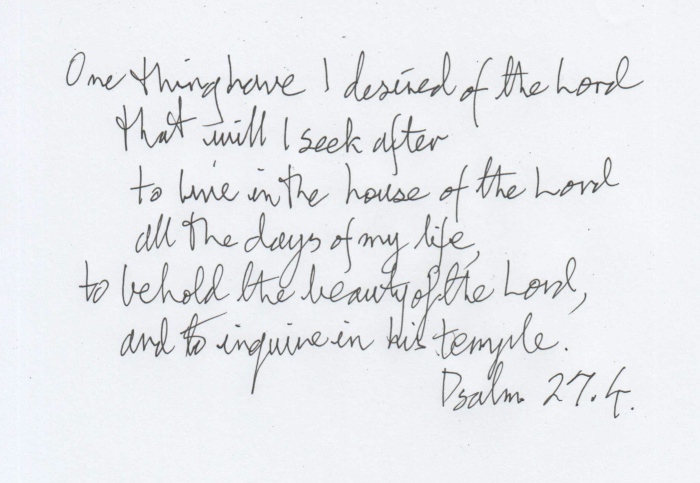Implicit learning is the learning of complex information in an incidental manner, without awareness of what has been learned. The result of implicit learning is knowledge in the form of abstract rather than verbatim or aggregated representations.
Learning to ride a bicycle or to swim are supposed examples of the nature of implicit learning and its mechanism. Not so in my case. I had to learn to ride a bicycle very explicitly and deliberately; it took days. And I still cannot swim.
Implicit learning is believed to differ from explicit learning by the absence of consciously accessible knowledge. Brain areas involved in working memory and attention are often more active during explicit than implicit learning. That being so, I cannot recall anything of significance that I have learned implicitly except, that is, for two most important things—some (by no means all) of my use of my native language (English) and a deep conviction and confidence, since earliest childhood, that there is a God, a heavenly Father, who loves me and cares for me. I would not say that confidence came explicitly from my parents in my early years, but it was certainly implicit in their care for me. And more recently I have tested it very explicitly through theological study.
In recent findings replicated across socio-religiously disparate samples studied in the U.S. and Afghanistan, implicit learning of patterns/order within visuospatial sequences (such as the outdoors, natural environment) were found by Weinberger, et. al. 1 to be predictive of (1) stronger belief in an intervening/ordering god, and (2) increased strength-of-belief from childhood to adulthood. This is consistent with research implicating this type of implicit learning as a basis of intuition, and intuition as a basis of belief. Do observation and implicit learning of patterns within life and the natural universe, thus lead to belief in ordering gods?
1. Adam B. Weinberger, Natalie M. Gallagher, Zachary J. Warren, Gwendolyn A. English, Fathali M. Moghaddam and Adam E. Green, “Implicit pattern learning predicts individual differences in belief in God in the United States and Afghanistan,” Nature Communications 11, 4503 (2020), doi:10.1038/s41467-020-18362-3]
 There is controversy
There is controversy 
 My study seeks a theological understanding of disagreement and conflict in church and society through a reading of the work of Rowan Williams. Williams’s theology of church and his understanding of its unity are closely interrelated. The church itself and its unity are God’s gift. Williams argues that conflict and unity are not opposed but are essential parts of the struggle for mutual recognition and solidarity. Thus I propose solidarity as a category through which to understand the oneness of the church and its relationship with society. According to Williams, God creates and sustains a universe of immeasurable difference within itself. Williams employs Gillian Rose’s reading of Hegel to introduce a metaphysical understanding of such difference and our response to it. The communal work of truth-seeking requires unavoidable negotiation, self-dispossession and loss, without which there may be tragic misrecognition of our interests and those of others. I critically examine situations of conflict that exemplify and test Williams’s theology. Looking beyond the church, I then explore Williams’s theologically grounded proposals for solidarity in a pluralist society oriented towards the common good.
My study seeks a theological understanding of disagreement and conflict in church and society through a reading of the work of Rowan Williams. Williams’s theology of church and his understanding of its unity are closely interrelated. The church itself and its unity are God’s gift. Williams argues that conflict and unity are not opposed but are essential parts of the struggle for mutual recognition and solidarity. Thus I propose solidarity as a category through which to understand the oneness of the church and its relationship with society. According to Williams, God creates and sustains a universe of immeasurable difference within itself. Williams employs Gillian Rose’s reading of Hegel to introduce a metaphysical understanding of such difference and our response to it. The communal work of truth-seeking requires unavoidable negotiation, self-dispossession and loss, without which there may be tragic misrecognition of our interests and those of others. I critically examine situations of conflict that exemplify and test Williams’s theology. Looking beyond the church, I then explore Williams’s theologically grounded proposals for solidarity in a pluralist society oriented towards the common good.